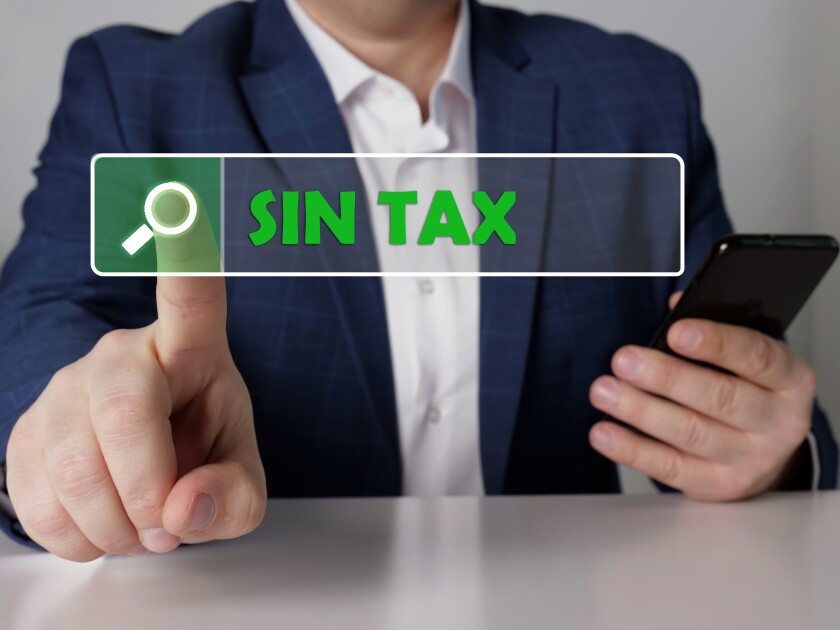Brazil has recently approved a broad consumption tax reform, which provides for, among other measures, the substitution of the federal excise tax for a ‘sin tax’ on goods and services (the selective tax) considered harmful to health or the environment.
As established by Constitutional Amendment 132/2023, the selective tax is a single-phased federal tax levied on transactions involving goods or services that are deemed harmful to health or the environment, to be defined by law. This tax will not be levied on exports, electricity, or telecommunications.
The selective tax is calculated on top of the net price and will not be included in its own taxable basis. It should be noted that this tax will be included in the taxable basis of the new VATs – goods and services tax (IBS) and contribution on goods and services (CBS) – and, during the transitional period, in the state VAT (ICMS) and municipal service tax (ISS) taxable basis.
Concerns arise over the proposal
Although a sin tax is a modern approach to regulatory taxation, with limited levy on specific goods and services, some concerns arose as Brazilian tax history shows that there is a tendency to unduly use taxes with extra-fiscal aspects (a stimulative function) for the sole purpose of collecting tax revenues, rather than regulating consumption.
As an example, the ICMS, although not an extra-fiscal tax by nature, is guided by the principle of selectivity based on the essentiality of the goods and services; thus, superfluous goods might be subject to higher taxation, while essential goods could (or should) be subject to a lower tax burden.
However, the states imposed a higher tax rate on transactions involving electricity and telecommunication services, which are undoubtedly essential for any activity or individual in the modern day. A case involving the state of Santa Catarina – which imposed a 25% rate on such supplies, as opposed to the regular 17% ICMS rate – was analysed by the Brazilian Federal Court in 2022, which deemed such higher rates unconstitutional. Despite the reasonable outcome, it was a discussion based on a state practice carried out for decades.
Most likely based on this experience, on March 19 2024, the Brazilian Congress presented Bill of Law 29/2024, aiming at regulating the general aspects of the selective tax.
Analysis of the bill of law
For now, the bill of law does not aim at imposing the selective tax, which should be done by another supplementary law. The bill intends to outline the general contours of the selective tax, highlighting its nature of burdening goods and services proven to be harmful to health or the environment.
The text requires that, when the selective tax is instituted, programmatic goals and objectives are established to mitigate the negative impacts of harmful activities, goods, or services, confirming its extra-fiscal character (consumption regulations rather than revenue collection). Furthermore, the supplementary law must provide for mechanisms for the exemption of, offsetting, or reducing the selective tax for taxpayers that promote prevention, mitigation, and awareness actions, and programmes relating to the goods or services taxed, as well as investing in a more sustainable chain of products and services.
To highlight the extra-fiscal nature, the bill of law determines that the supplementary law that imposes the selective tax requires justification in objective data and analysis of economic impacts on other sectors, and observes mechanisms for prior studies, monitoring, and evaluation of its results.
As a consequence, if the programmatic goals and objectives are not achieved, the levy of the selective tax may be suspended until further reassessment, which should ensure public participation.
Another very favourable point of the bill of law is that it requires the definition of different rates according to the essentiality and level of harmfulness of the goods or services taxed. This is an important measure to avoid the imposition of a tax that, by its nature, is regulatory, and merely for revenue purposes. The bill of law proposes a transition for the imposition of the selective tax, with a gradual increase of its rate each year, in the period from 2027 to 2033.
Furthermore, the bill of law provides for cases of non-levy of the selective tax, such as exports, transactions with electrical energy and telecommunications, transactions with products and services linked to energy transition and the reduction of carbon emissions, and goods and services subject to a tax rate reduction under the IBS or the CBS.
The non-levy also applies to transactions involving goods or services derived from, or that have goods and services as an input for or are part of the production chain of, goods or services expressly not subject to the selective tax. If the selective tax was levied in the production chain of expressly non-taxed goods and services, the tax may be used for offsetting against other federal taxes.
Final comment on the regulation
The regulation proposed comes as good news, as it demonstrates an effort to assure the extra-fiscal aspect of the selective tax, avoiding its misuse solely for tax revenue purposes. This is very important as, although the original tax reform bill expressly provided that the selective tax was extra-fiscal, the end text suppressed such provision, which, based on Brazil’s tax history, generated some concerns.












